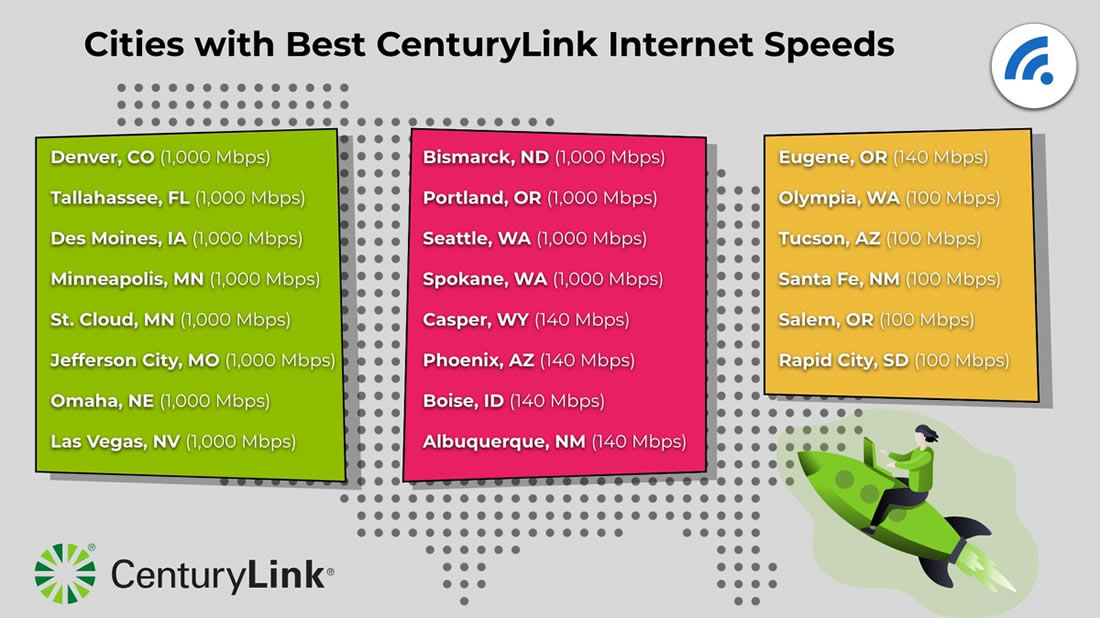Speed tests are helpful and important tools to help us diagnose internet issues and determine whether we are getting everything we were promised from an ISP. In this case, we'll be looking at CenturyLink, diving into some stats on previous tests. Use the tool below to check your internet speed, compare it to what you were promised and the averages, and learn more about what you could be working with.
When performing the test, we recommend using an ethernet cable if possible and don't have too many devices or programs potentially taking up your bandwidth beyond the normal. We also advise you to test at multiple times of the day and run several tests to ensure you're getting the best possible data.
The statistic used the most when looking at internet plans is the download speed, usually in Mbps. Higher numbers are better here. Having a strong download speed is essential for things such as watching videos online, getting files quickly, and being able to accommodate multiple users in one household.
Upload speed is relevant when sending files and information to other servers and locations online. Your upload speed will likely be lower than download speeds, as several types of internet service have an asymmetrical connection. However, having a reasonable upload speed (at least 3-5Mbps) is required for many everyday tasks.
A different form of speed to measure, your ping rate or latency is a measurement of how long it takes your device (through the network) to send a packet or signal and get a response. In this case, the lower, the better, and a poor result here can mean a bad experience with video calls, online gaming, and other processes.
According to research conducted by the FCC, these are the cities (or metro areas) in the United States that Centurylink offers the fastest connections to, making them a top provider in the area.

Some will have gigabit service, and others will only reach 100Mbps, but in these cities, you should nonetheless consider Centurylink an effective option.

What is advertised is not always what you will get when it comes to an internet service plan. Out of the plans studied, Century Link has shown that they are slightly slower on average than the speeds they advertise, but only by very little and within an acceptable margin. However, do note that these numbers are averages, and your experience may differ.

This graph shows the average of the top 10 percent of internet download speeds from CenturyLink, based on many speed tests, over the last 12 months.

If you're curious as to the average, this graph showcases CenturyLink's average download speeds across all users over the past 12 months.
If your internet speed is consistently less than 80 percent of that advertised, it is a problem that deserves your attention. This assumes there's nothing else using the connection and that you're using an ethernet cable.
If you're primarily using WiFi throughout the home, as many households are, you can expect download speeds to be about 30 to 50 percent of advertised speeds. However, this will vary based on the equipment you are using, anything blocking or interfering with the WiFi signal, and additional factors.
The answer to this will vary from household to household, but most households should look for a 25 Mbps connection or faster at a minimum, so they do not experience slowdown or buffering. As a minimum to perform common tasks, they should look for a connection of 10Mbps or higher.
We hope that this speed test has helped you better understand your connection, what you're getting from CenturyLink, and what you could be getting from them or other providers. We hope that if you think you could be getting more, you don't stop here and instead take the next steps towards a better internet connection and a better home.